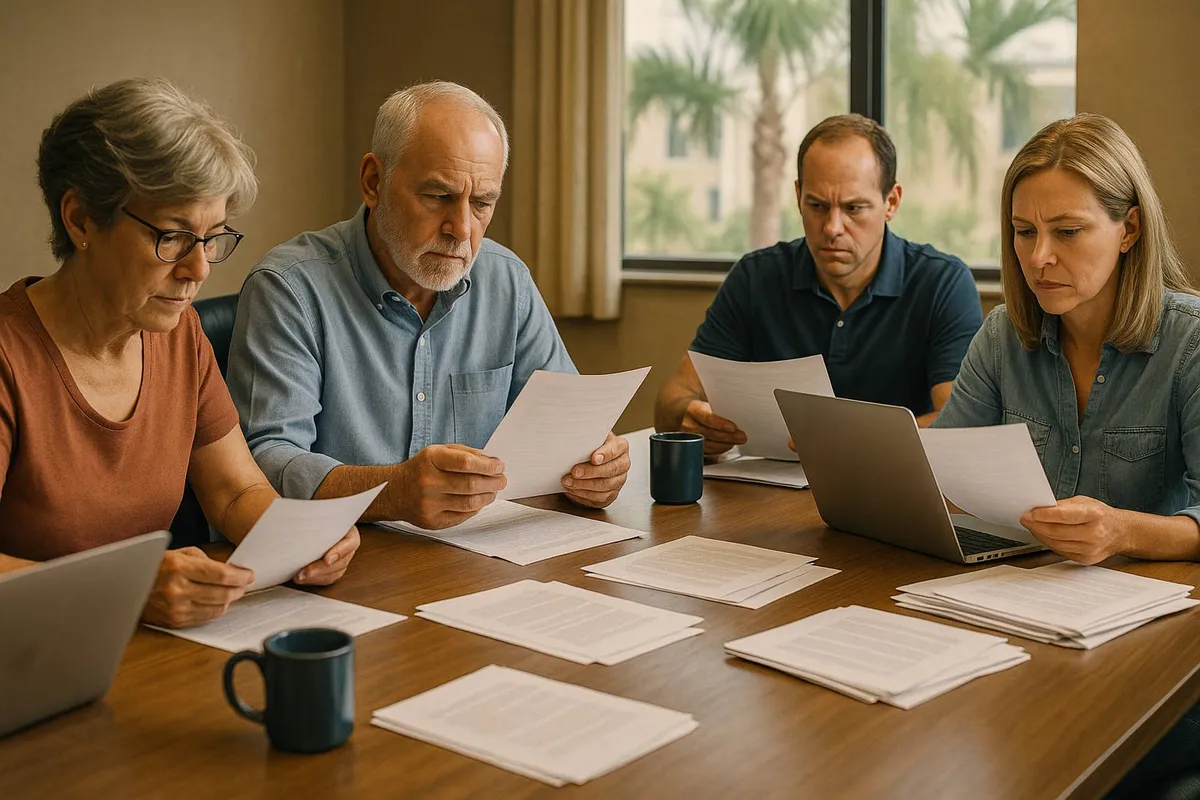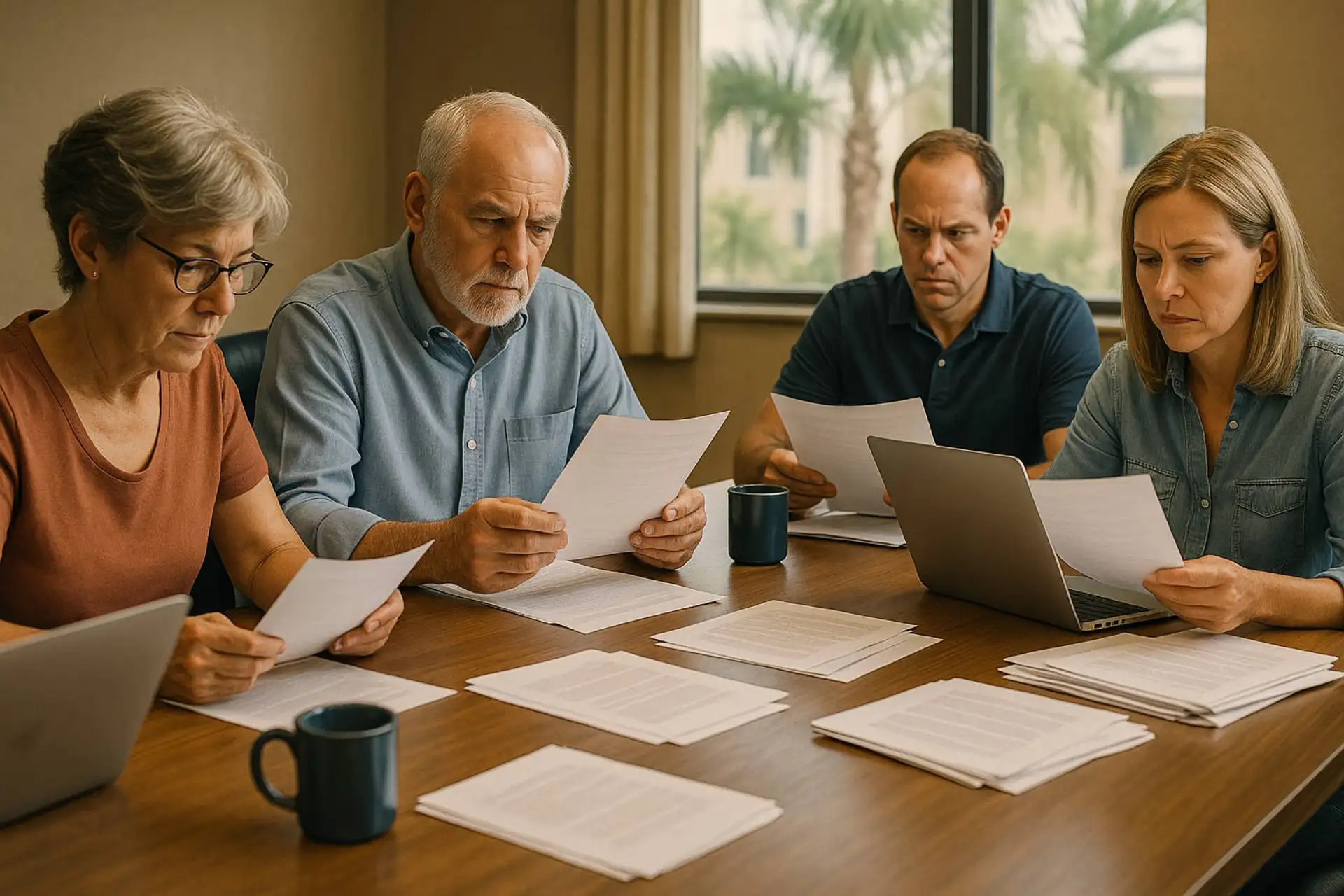The Legal Risk of Failing to Post Condo Board Meeting Minutes Under HB 913
August 4, 2025

The Legal Risk of Failing to Post Condo Board Meeting Minutes Under HB 913
Table of Contents
- Why HB 913 Changed the Game
- What the Law Says About Meeting Minutes
- Legal Risk: DBPR Enforcement and Owner Lawsuits
- How to Stay Compliant and Protect Your Board
- Final Thoughts
Why HB 913 Changed the Game
Starting January 1, 2026, Florida condo boards with 25 or more units are legally required to post their approved board meeting minutes online within 30 days of creation or approval. This is part of House Bill 913 (HB 913), which expanded transparency rules originally applied to 150+ unit buildings.
The new law dramatically increases liability exposure for board members who delay or forget this step.
“Condominium associations must ensure that digital or public kiosk access is provided to all official records… including meeting minutes, notices, and financial reports.”
— Florida DBPR Compliance Manual (2025)
What the Law Says About Meeting Minutes
HB 913 amends Florida Statute 718.111(12) to include stricter timelines and digital posting mandates. Here’s what’s required:
- ✅ Minutes must be officially approved at a subsequent board meeting.
- ✅ Within 30 days of approval, the minutes must be posted to a digital portal.
- ✅ The last 12 months of minutes must be continuously available online.
Failure to comply constitutes a violation of statutory recordkeeping laws and can trigger administrative enforcement by the DBPR.
Legal Risk: DBPR Enforcement and Owner Lawsuits
So what happens if your board forgets to post its minutes?
1. DBPR Complaints
Unit owners can file complaints directly with the Florida Department of Business and Professional Regulation. If your portal is missing minutes or doesn’t show timely uploads, you could face penalties or mandatory corrective actions.
2. Fines and Enforcement
Under Florida law, the DBPR has the authority to issue civil penalties for noncompliance. These fines can escalate depending on the number of missing records and the board’s history.
“Failure to provide required access to official records within the statutory timeline is a violation and may result in disciplinary action.”
— Florida Senate HB 913 Summary
3. Civil Liability
Beyond DBPR enforcement, board members may be sued by owners for withholding access to records. If your minutes aren’t posted and accessible, this can be framed as a breach of fiduciary duty — particularly in cases involving major decisions or financial changes.
How to Stay Compliant and Protect Your Board
✅ Approve Minutes Promptly
Don’t delay approvals. Boards should schedule time in every meeting to finalize and approve the prior meeting’s minutes.
✅ Post Within the 30-Day Window
This is the most critical step. Minutes must go live on your public portal no later than 30 days from approval. Use reminders, compliance calendars, or automation.
📥 Want a printable checklist of everything required under HB 913?
👉 Download the HB 913 Compliance Checklist →
✅ Maintain a 12-Month Archive
Your portal should show a full year of meeting history — no gaps, no hidden records. This creates legal cover and satisfies auditors or inspectors.
✅ Log and Timestamp Your Posts
Use a system that logs:
- When minutes were uploaded
- Who uploaded them
- What changes were made
This audit trail can protect the board from accusations of tampering or negligence.
Final Thoughts
Florida’s HB 913 isn’t just a transparency rule — it’s a ticking compliance clock for every condo board in the state. And while the law may seem simple (post your minutes!), the consequences of missing a deadline can be severe.
Don’t let your board get caught off guard.
👉 Start Your Free Trial →
We automate the entire process — from approval to upload, from timestamping to public access — and give your board a legal safety net that old tools can’t provide.
Protect your community. Protect your board. Comply with HB 913 the smart way.

